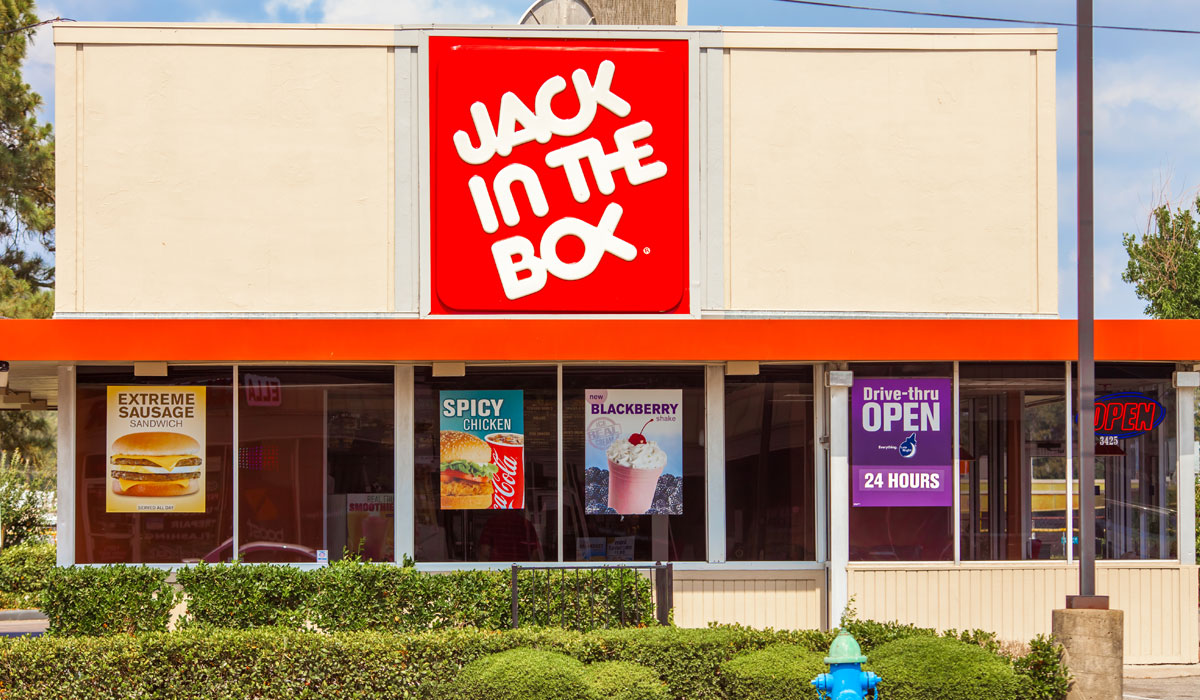The National Jack in the Box Franchisee Association filed a complaint with the California Department of Business Oversight regarding Jack in the Box’s new financial restructuring strategy, the company announced Monday. According to the NFA, which represents 95 franchise owners with about 2,000 of the brand’s 2,240 restaurants, Jack in the Box intends to realign its assets and revenues, including its portfolio of property leases, among its newly created subsidiaries.
On October 8, Jack in the Box sent a letter to the landlords of the 1,800 or so different properties informing them of the company’s intentions to restructure, with the goal of increasing credit worthiness and securing new financing, the NFA said. In the letter, the chain requested that current landlords transfer their lease agreements from Jack in the Box, Inc. into one of its newly former subsidiaries—Jack in the Box Properties, LLC.
“The intent behind filing this complaint is to protect the tenant rights of franchisees who have invested their life savings in these buildings,” said Dan Watkins, attorney representing the National JIB Franchisee Association, in a statement. “We are asking the state who licenses and regulates franchising and Jack in the Box, Inc. to insure the franchisees are protected from losing their livelihood as well as their employees.”
The NFA said, without vital information from Jack in the Box regarding which landlord holds their master lease agreement, the stipulations contained in those agreements, or whether that agreement has been reassigned to a new subsidiary, “there is cause for concern across the franchise community. They are concerned about the possibility that their rights to occupy and operate at a given location could be terminated with very little notice or opportunity to rectify the situation.”
Under the current agreements, the 1,800 leased properties where Jack in the Box is identified as the primary lessee (900 of which are in California), are sub-leased to franchise owners who pay all rent, taxes, and insurance to Jack in the Box, which are then sent to each respective landlord. Per the NFA, franchisees are not in direct contact with landlords and do not have a view of how those rent payments are split among Jack in the Box and the landlord.
“As stated in the complaint from the NFA, landlords who opt not to have their lease re-assigned to the new subsidiary and wish to have their lease agreement remain with Jack in the Box, Inc. have been warned by JIB in a letter to them that there may be no assets or revenues to pay their rents,” the association said in a release.
Jack in the Box reported its fourth quarter and fiscal 2018 earnings Monday as well. The chain’s system same-store sales lifted 0.5 percent in the quarter. Company units upped 9.8 percent driven by average check growth of 2.8 percent, offset by a 2 percent decline in transactions, year-over-year. Franchise restaurants hiked 0.4 percent in Q4.
There were 137 company run and 2,100 franchise stores as of September 30.
Earnings from continuing operations were $18.3 million, or 68 cents per diluted share, for the fourth quarter of fiscal 2018 compared with $31.3 million, or $1.05 per diluted share, for the fourth quarter of fiscal 2017.
The company also completed the sale of Qdoba on March 21. Jack in the Box was scheduled to dive deeper into the results in a Tuesday morning conference call.
“Our long-term goals are centered around meeting evolving consumer needs, with emphasis on improving operations consistency and targeted investments designed to maximize our returns. We remain focused on balancing the interests of all our stakeholders, including our franchisees, customers, employees and shareholders,” chief executive officer Lenny Comma said in a statement.
Comma was the object of the NFA’s October statement regarding the health of the brand. The association called for Comma to step down and for the board of directors to replace the brand’s current leadership team. This came after the association had a majority vote of “no confidence” at its annual meeting in July.
“The vote of ‘No Confidence’ is the culmination of years of long-ranging discussions and unanswered concerns brought directly to Jack in the Box CEO Lenny Comma,” said Michael Norwich, NFA Board Chairman, in a statement at the time. “We have reached out in every possible manner to communicate our concerns to the leadership and the current board of directors by offering meetings, conducting our own surveys of the franchise system, and proposing various solutions to the issues facing our system.
He added: “Following an extended period of time that was characterized by a lack of effective reaction by Jack in the Box leadership to remedy our expressed concerns which include among other things, a severe lack of corporate resources being devoted to providing service, support, assistance and marketing to the franchisee community and which have caused an unsustainable loss in sales and transactions, our membership has cast a vote of ‘No Confidence’ in the executive leadership at Jack in the Box and are asking for immediate response and action by the company’s Board of Directors.”









